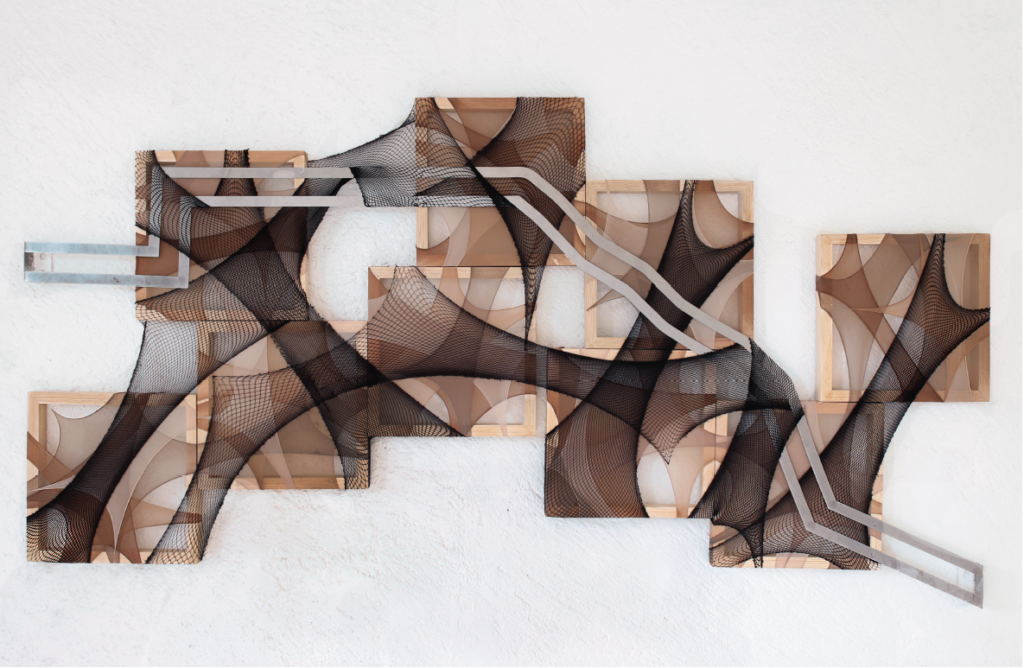This piece shares the same medium as the chromatic range piece, featuring plain nylon and lycra stockings in "skin" tones, alongside added black fishnet stockings, all mounted on medium-sized wooden frames (25 x 25 cm). A metal strip crosses these stockings, representing the border line of Chihuahua, México, frontier state adjacent to the United States of America. This border region hosts various crossing points for those seeking to cross over, and it's also home to numerous maquiladoras and factories, established to maintain low labor costs in the production of materials and products for transnational companies (among them, nylon and lycra production). Paradoxically, pantyhose, made with these materials, are products consumed by the female workers in these factories, as only such products allow them to endure the long workdays without leg discomfort. Additionally, black fishnet stockings are commonly worn by sex workers in this area. Both types of stockings are part of forensic investigations in femicide cases in the region, often serving as primary evidence found at crime scenes, aiding in determining the typology of the homicide (femicides). The piece aims to critique how this division of labor at the border directly correlates with gender violence in the border region of Chihuahua. Given the localized context around which the piece revolves, its title is an emblematic quote from journalist Víctor Ronquillo, who published his book "Las muertas de Juárez: Crónica de una larga pesadilla"("Juarez Death Women: Chronicle of a Long Nightmare") in 1999, a work credited with popularizing the term "las muertas de Juárez" to refer to the victims.
"The border town, a station of hell, where 200 women have been murdered."

90cm x 170cm
Nylon stockings and cuted metal plate placed over wooden frames.
2017 © Claudia Uranga Alonso
